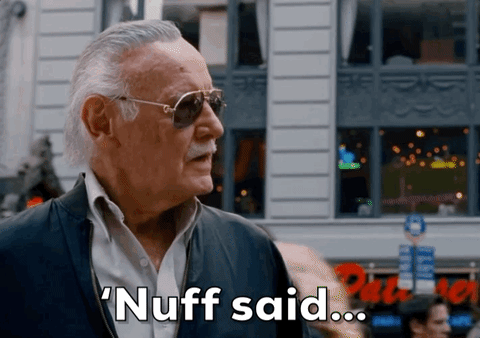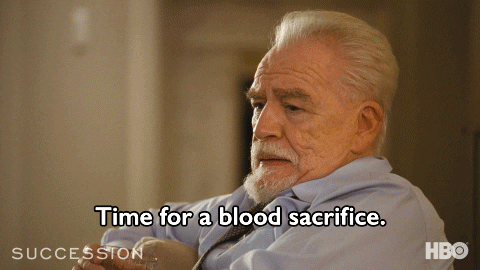Fan Status: Fatigued
What happens when a fanbase is over it? From Marvel to Glossier, we discuss fan fatigue and what it takes to revive that love.
In the dynamic realm of brand-consumer relationships, "fan fatigue" emerges as a prescient challenge for established businesses. While ardent fans are the lifeblood of any brand, their loyalty can waver when faced with a decline in quality, subpar customer service, or a misalignment of values.
It’s easy to believe that all you have to do is nurture that bond in the beginning, and then those fans will keep showing up, but it’s so much harder than that, and it’s easier to lose that love than it is to gain it.
Quality Decline:
At the heart of fan fatigue lies the disheartening realization that the product or service that once garnered passionate devotion is no longer meeting expectations. Whether it's a drop in product quality, a decline in service standards, or a failure to innovate, fans are quick to notice and, subsequently, quick to feel disenchanted.
Brand love is inherently tied to the perceived value a product or service provides. When this value diminishes, the emotional connection weakens, paving the way for fan fatigue. Businesses must recognize that sustaining brand love necessitates a relentless commitment to delivering exceptional quality.
We’re seeing this first-hand with Marvel, once a box office darling.
I've always felt that quantity can be actually a negative when it comes to quality. And I think that's exactly what happened. We lost some focus.
- Bob Iger
Though this sentiment feels specifically nascent with the low box office of The Marvels, it has been building for quite some time. Fandom released a study of DC and Marvel fans in 2022, and there were already signs of fatigue (read: it’s not The Marvels’ fault).
This goes beyond the quality of the product but extends to the quality of the experience. No one wants to watch 20 movies and get a bachelor’s degree in the MCU in order to watch a movie anymore. The Easter eggs that once made the experience feel extra special for diehard fans are now an Olympic sport, with many viewers feeling lost or getting distracted by determining what the meaning is instead of being immersed in the stories themselves.
The first three phases of the MCU felt cohesive and connected with a common conclusion. An endgame, if you will. Now, as fans watch the X-Men, Fantastic Four, and other worlds converging into the MCU, it’s easy not just to be fatigued BUT to start resembling comic book fan behavior: buying their favorite IP and only branching out for special crossover or team-up events. As Marvel’s universe expands into movies and TV shows, fans are left choosing what they are willing to invest in actively.
Lack of Customer Service:
The role of customer service cannot be overstated. It serves as the frontline in managing and maintaining brand love. When fans encounter indifferent or subpar customer service, their loyalty takes a hit.
Fans want to feel valued, heard, and appreciated. If customer service fails to address concerns promptly or lacks empathy, fan fatigue sets in. The emotional investment fans make in a brand is reciprocated through exceptional customer service. Neglecting this critical aspect risks eroding the very foundation of brand loyalty.
This was on clear display as F1 fans were removed from grandstands and fan areas, with many of the events taking place without fans, even though thousands descended on Las Vegas for the specific event. Spending hundreds if not thousands of dollars for an event to only be removed and unable to see the action leaves a horrible taste in fans’ mouths, especially for many who are getting into the sport for the first time, as it grows in popularity in the United States.
This leads to negativity on the scale you see for love.
Just as fans love to shower their adoration for certain properties online, they can be just as vitriolic when they are angry, and this can quickly turn into toxic fandom. The key here is in how their complaints are responded to. It’s important to be able to differentiate those with clear problems and concerns versus those who have an agenda to destroy brand affinity or troll.
Misalignment of Values:
Consumers seek not just products but a shared set of values, any misalignment can be detrimental. When a brand veers away from the principles that initially resonated with its fanbase, disillusionment follows. Fans who once championed the brand may find themselves questioning their allegiance.
This misalignment can manifest in various forms, such as conflicting social or environmental stances, divergent ethical practices, or a failure to uphold promises made to the community. A brand's values are integral to its identity, and any deviation risks alienating the very audience it seeks to engage.
For fans of diehard brands like Glossier, we see fans leaving when there are accusations of workplace racism and a lack of adapting to more sustainable and eco-friendly product offerings. Though Glossier is still around today, it has lost the cult following it once had, and its founder and CEO, Emily Weiss, has since resigned as CEO after recent layoffs.
This signals the brand is adapting to the needs of customers and sees the need for a different direction in leadership. This is sometimes necessary as figureheads become the face of the problems most associated with disconnected brands. For better or for worse, fans need to see change in leadership to believe that anything will actually be different in the future.
Combatting Fan Fatigue:
To counteract fan fatigue, businesses must adopt a proactive approach:
Prioritize Quality: Consistently deliver products and services that exceed expectations, maintaining the value that initially captured fans’ hearts.
Elevate Customer Service: Cultivate a customer-centric culture that prioritizes responsiveness, empathy, and swift issue resolution, reinforcing the emotional bond with fans.
Align Values: Reassess and realign brand values with the evolving expectations and sensitivities of the fanbase, ensuring a harmonious connection.
Combating fan fatigue demands not just a commitment to quality, service, and values, but an understanding that sustaining loyalty is an ongoing journey. By addressing these challenges head-on, brands can rekindle the flame of devotion and fortify their relationships with the fans that make their success possible.
Have you seen brands save their relationship with fans? How did they fix it?
Have you grown tired of a brand because of how you were treated?
Sound off in the comments!
Until next time,
CG







The comic book stuff is so overdone, so yeah there's fatigue there. The capitalist playbook applied to creative fields by a certain sect of bean counter results in terminal 0s of franchises. These media companies need far better leadership, it's obvious